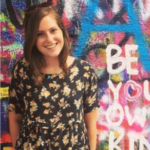 This week’s torah portion is a double one – Tazria-Metzorah. While the majority of it focuses on ritual purity and impurity, such as in the context of the purification of mothers following childbirth and the regulations regarding the emission of bodily fluids, I actually want to focus on the procedures of identifying and responding to tzara’at. Tzara’at technically translates to leprosy, but commentators have concluded that this translation doesn’t correspond with the present-day definition of it. You see, this biblical leprosy manifested as a skin rash of sorts in response to an individual speaking lashon hara (essentially, gossip or literally, “evil tongue”). If the priest examined one’s blemishes and determined them to be leprosy, he sent that individual outside the camp until his or her skin cleared up. Until then, he or she had to live in isolation, publicly declare him or herself to be “unclean” to the others in the community, and reflect on his or her actions. The disease cleared up once the individual understood and made peace with his or her wrongdoings. Following such, purification rituals took place prior to the individual being able to rejoin the community.
This week’s torah portion is a double one – Tazria-Metzorah. While the majority of it focuses on ritual purity and impurity, such as in the context of the purification of mothers following childbirth and the regulations regarding the emission of bodily fluids, I actually want to focus on the procedures of identifying and responding to tzara’at. Tzara’at technically translates to leprosy, but commentators have concluded that this translation doesn’t correspond with the present-day definition of it. You see, this biblical leprosy manifested as a skin rash of sorts in response to an individual speaking lashon hara (essentially, gossip or literally, “evil tongue”). If the priest examined one’s blemishes and determined them to be leprosy, he sent that individual outside the camp until his or her skin cleared up. Until then, he or she had to live in isolation, publicly declare him or herself to be “unclean” to the others in the community, and reflect on his or her actions. The disease cleared up once the individual understood and made peace with his or her wrongdoings. Following such, purification rituals took place prior to the individual being able to rejoin the community.
In this parsha, G-d teaches us about the power of words and language and the importance of using them for good, rather than evil. During creation, we were blessed by G-d with the ability to communicate with one another through speech. This way of interacting serves as the very basis for relationship forming and building. When used correctly, people from all over the world can come together and form meaningful connections. They can express themselves, teach, learn, advocate, listen, and make sense of their world and the people around them. However, when taken advantage of and used incorrectly, much harm can be done.
At Camp Ramah, we are so fortunate to be part of a kehillah kedosha (holy community) of such incredible and unique individuals in which each person adds so much value and meaning to the lives around him or her. At the very foundation of this kehillah kedosha are 8 midot (values) that symbolize the toolbox that we want to empower each individual with throughout their journey at Ramah. It is no wonder why lashon is one of these pillars. Using language for good sets the stage for positive relationships, both old and new. It also allows us to focus on ourselves and what’s right in front of us, rather than that bad thing that just happened that we really want to blame someone else for. Beyond the connections made with others through positive language, at the very basis of it is a chance for self-reflection, much perspective, and our personal contributions to maintaining a kehillah kedosha.
While the biblical consequence for lashon hara was a bit extreme, let it be a reminder of the importance of taking responsibility for our actions and holding each other accountable for them, of the fact that we all still have areas to grow in, and of the sheer power and impact that language truly holds in our lives. May this week and this kayitz (summer) be filled with lashon hatov (good speech) and kavana (intentionality).
